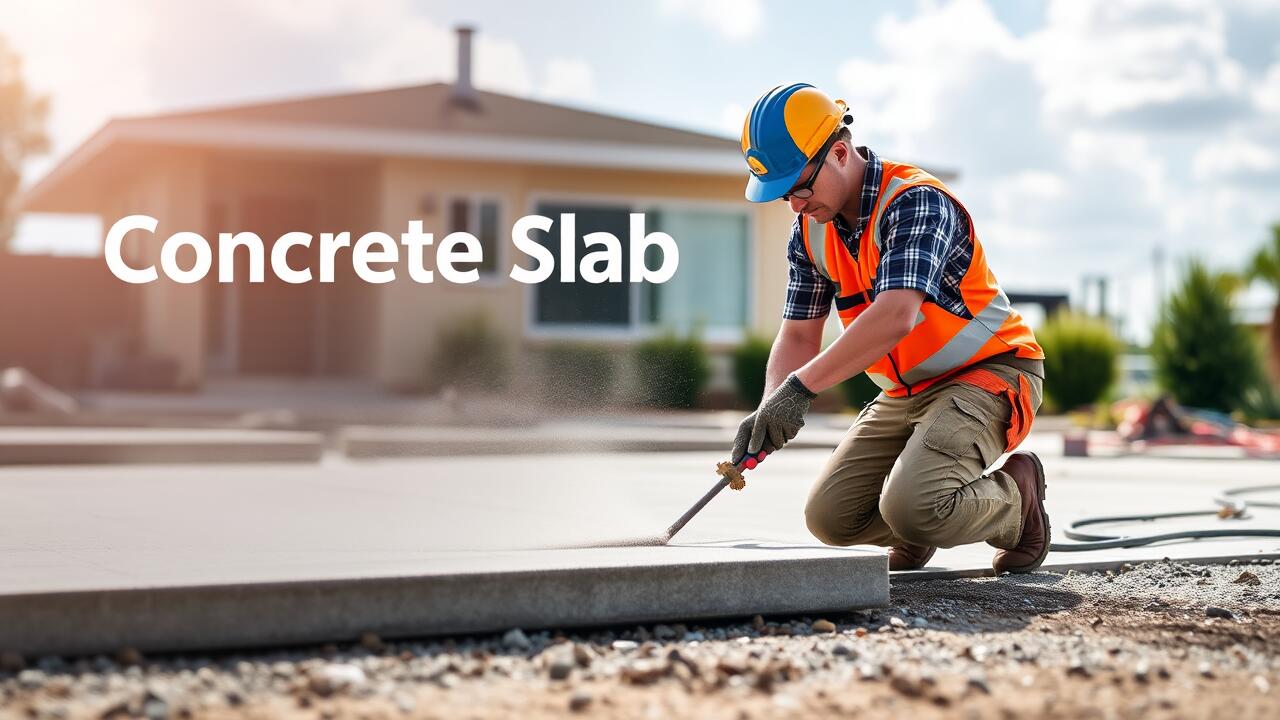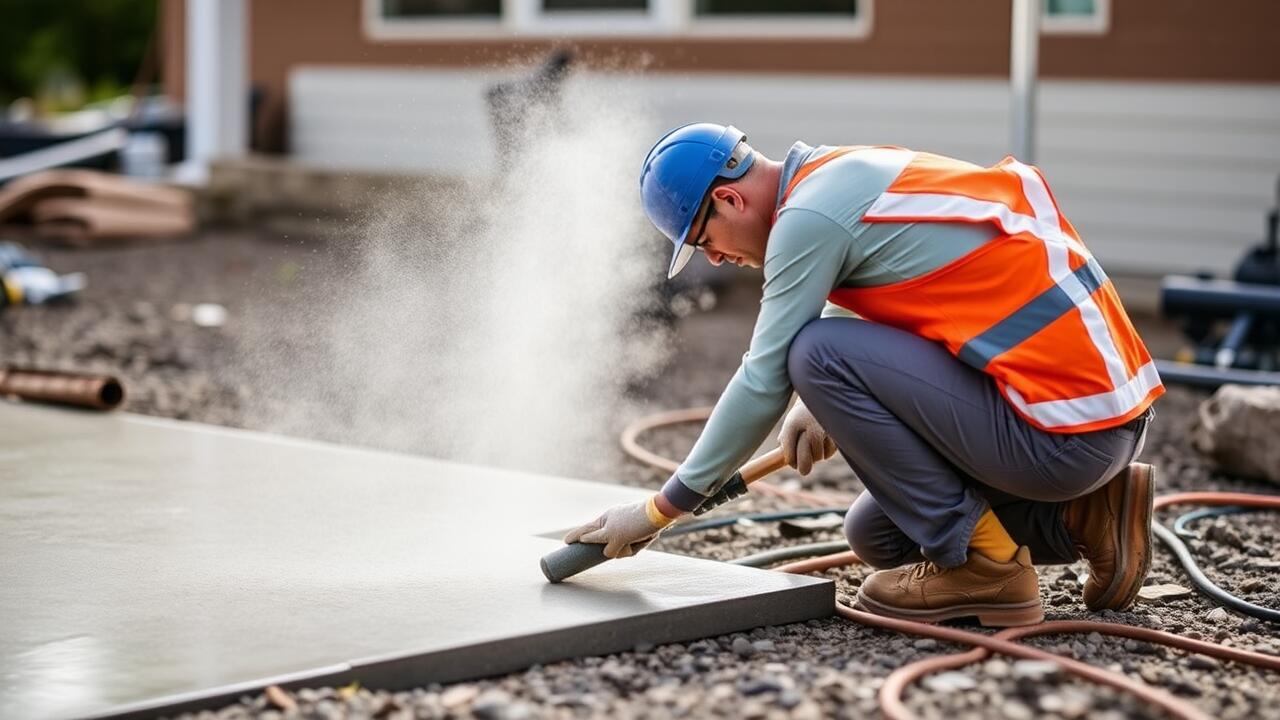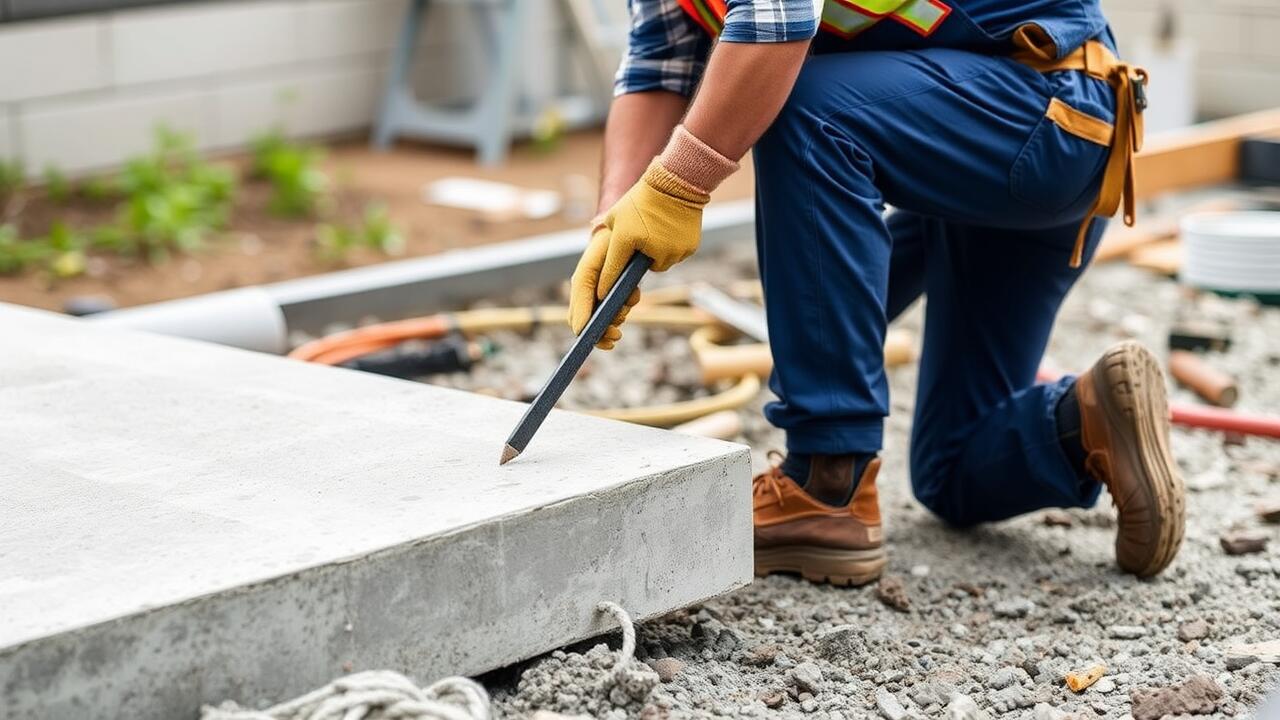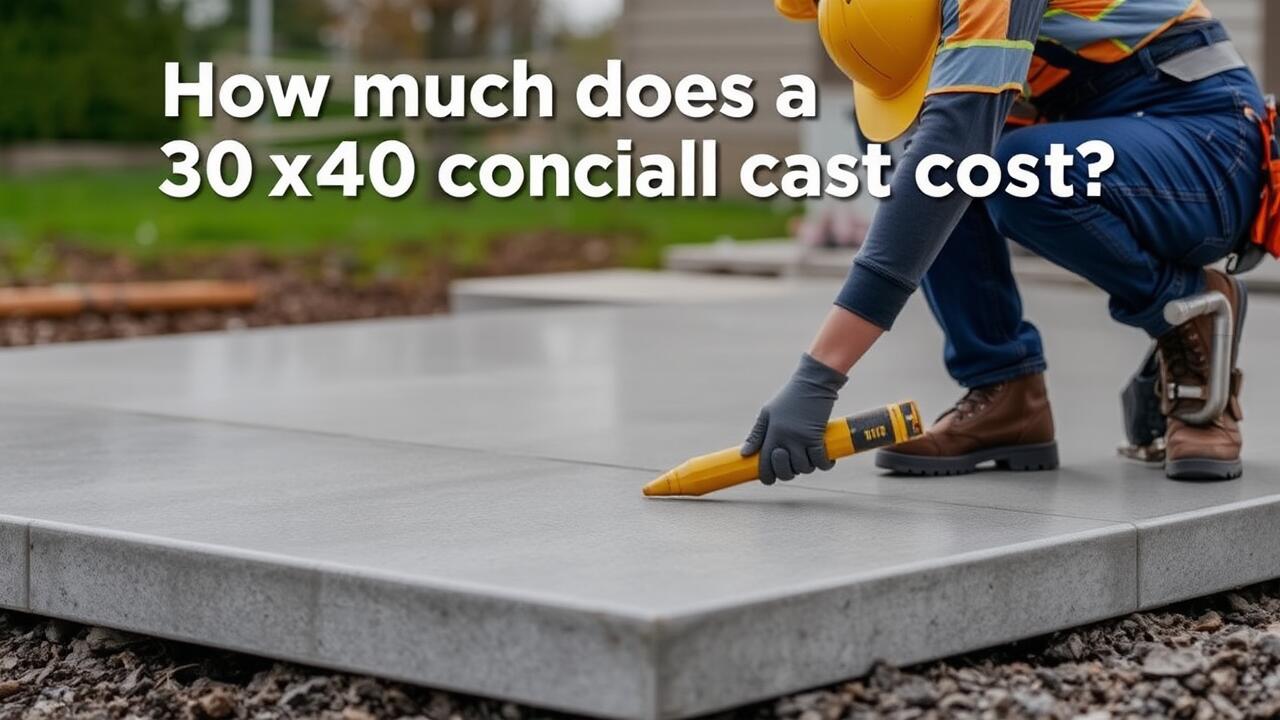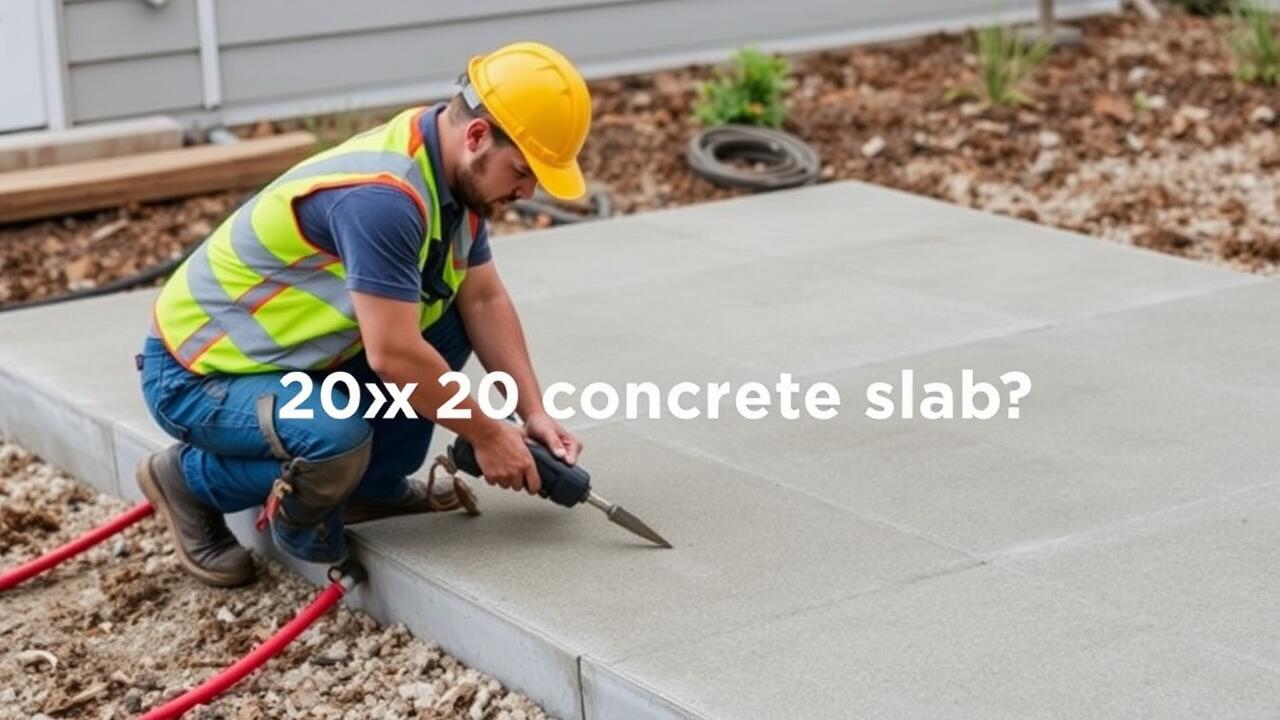
Accounting for Labor Costs
Labor costs play a significant role in estimating the total expense of a concrete slab project. It is essential to account for both skilled and unskilled labor when calculating these costs. Skilled labor includes concrete finishers and supervisors, while unskilled labor typically comprises helpers and laborers. Depending on the complexity of the project and local market rates, labor costs can vary widely. Homeowners often look for "Concrete Slab Installation near me" to ensure they are hiring qualified professionals within their area.
When assessing labor costs, consider the estimated hours required for the job. Factors like the size of the slab, the intricacy of the design, and the prevailing weather conditions can impact the time needed for proper installation. Obtaining multiple quotes from contractors is advisable, as this will provide a range of labor costs and help identify the best option for your budget. Ensuring that you have a clear understanding of these costs will aid in more accurate budgeting for the entire concrete slab project.
Average Labor Rates for Concrete Installation
Labor costs play a significant role in the overall estimate for concrete slab installation. Rates can vary widely based on geographic location, the complexity of the job, and the experience level of the workers involved. Typically, hourly rates for concrete laborers can range from $20 to $60, with skilled laborers often commanding higher fees. Area-specific demand for skilled labor can also impact these rates, making it essential to research local costs when estimating your project.
Finding reliable contractors for concrete slab installation can be facilitated by searching for terms like "Concrete Slab Installation near me." This approach not only helps you assess the going rates in your vicinity but also allows for comparison in the quality of service and expertise offered by professionals. It is advisable to obtain several quotes to ensure a competitive rate while also considering the experience and reputation of the contractors in your area.
Considering Additional Expenses
When planning for a concrete slab installation, it’s essential to factor in additional expenses beyond just materials and labor. Permits may be required, depending on local regulations and property zoning laws. Fees for permits can vary significantly, so it is best to check with your local government for specific requirements. Additionally, reinforcements such as rebar or wire mesh may be necessary for added strength, which can increase overall costs. Site preparation is another crucial expense, as grading, excavation, and drainage solutions are often needed to ensure a stable foundation for the slab.
Understanding these potential costs is vital for an accurate estimate. If you are exploring options for Concrete Slab Installation near me, consider discussing these additional expenses with contractors. They can provide insights into local requirements and the specific needs of your project. Proper planning and consultation will help you avoid unexpected costs and ensure a smooth installation process.
Permits, Reinforcements, and Site Preparation
When planning for concrete slab installation, it is essential to account for permits, reinforcements, and site preparation. Many local governments require permits for construction projects. Securing these permits might involve fees, paperwork, and waiting periods. Understanding the specific requirements in your area can help avoid delays. Reinforcements, such as rebar or wire mesh, may be necessary for added strength. These materials increase the durability of the slab and must be factored into the overall cost.
Site preparation is a critical step in ensuring a successful concrete slab installation. This process often involves clearing the area, grading the land, and addressing any drainage issues. Poorly prepared sites can lead to settling or cracking after the concrete has set. Homeowners searching for "Concrete Slab Installation near me" should also consider the equipment and labor needed for site preparation. Proper preparation can save money in the long run by preventing costly repairs and extending the lifespan of the slab.
Evaluating Site Conditions
Evaluating site conditions is crucial for successful concrete slab installation. The type of soil present can significantly impact the requirements of the slab. If the soil is too soft or contains a high water table, it may necessitate additional reinforcement or a thicker slab to prevent cracking and shifting over time. Understanding these factors before beginning the project helps in determining the most appropriate measures for stability and longevity.
When searching for "Concrete Slab Installation near me," it is important to choose professionals who thoroughly assess site conditions. Experienced contractors will conduct soil tests and evaluate drainage patterns to ensure proper support for the slab. This detailed evaluation not only aids in choosing the right materials but also helps in anticipating any additional costs related to site preparation or reinforcement.
How Soil Type Affects Slab Requirements
Soil type plays a significant role in determining the requirements for a concrete slab. Different types of soil, such as clay, sandy, or rocky, exhibit varying levels of stability and drainage. For instance, clay soils can retain water, leading to potential issues with expansion and contraction, which can compromise the integrity of a slab. In contrast, sandy soils generally allow for better drainage but may require additional reinforcement for stability. Evaluating the soil type can help homeowners understand the necessary steps for proper concrete slab preparation.
When considering concrete slab installation near me, it’s essential to assess the potential impact of soil conditions beforehand. Soil testing can provide valuable insights, allowing for the implementation of effective measures such as footing design or moisture barriers. Proper preparation is vital for ensuring long-lasting support for the slab. Understanding these factors can lead to better results and minimize the risk of future cracks or settling.
FAQS
What factors should I consider when estimating the cost of a concrete slab?
When estimating the cost of a concrete slab, you should consider labor costs, additional expenses such as permits and reinforcements, and site conditions, including the type of soil.
How do labor rates impact the total cost of a concrete slab installation?
Labor rates can significantly affect the total cost of installation, as different contractors may charge varying rates. It’s essential to obtain quotes from multiple contractors to get an accurate estimate.
Are there any additional expenses I should be aware of when estimating concrete slab costs?
Yes, you should account for additional expenses like permits, site preparation, and reinforcement materials, as these can add to the overall project cost.
How does the type of soil influence the requirements for a concrete slab?
The type of soil can affect the strength and stability needed for the concrete slab. Certain soil conditions may require additional reinforcement or specialized preparation, which can alter the overall cost.
Do I need a permit to install a concrete slab?
In many areas, a permit is required for concrete slab installations, especially for larger projects. It’s important to check local regulations to ensure compliance and avoid potential fines.
